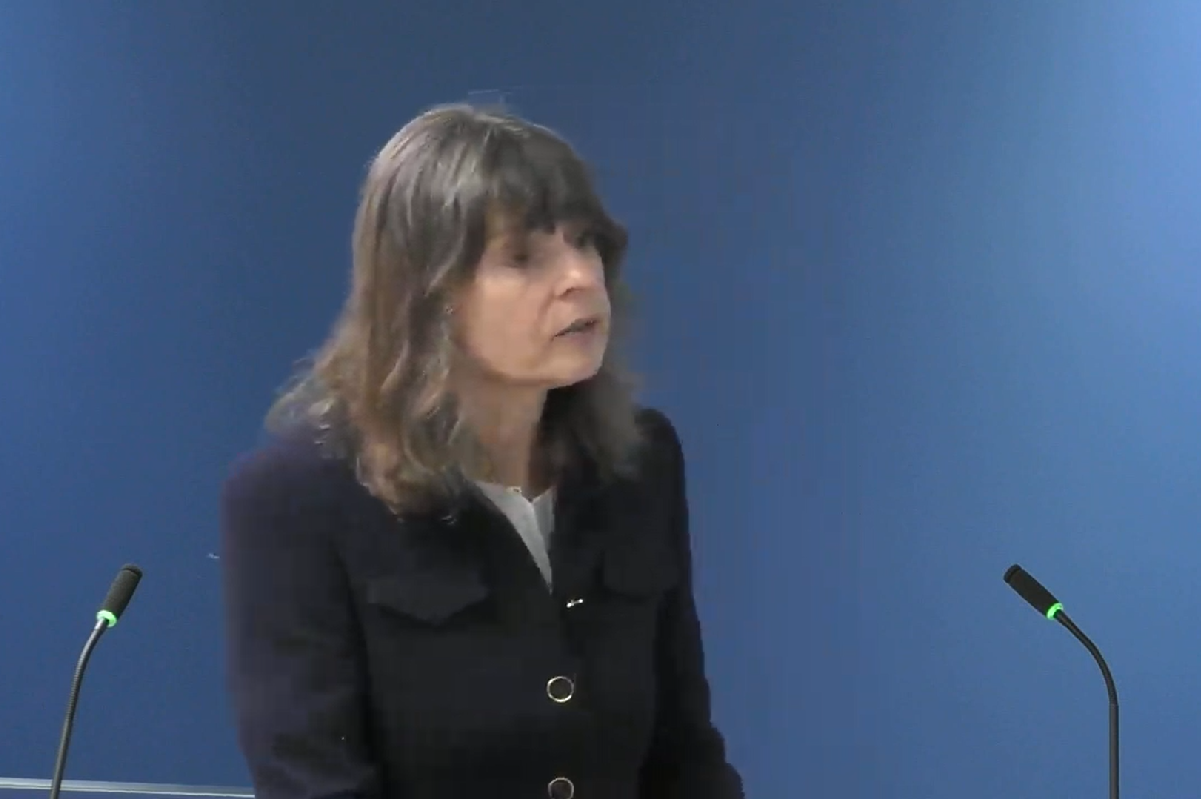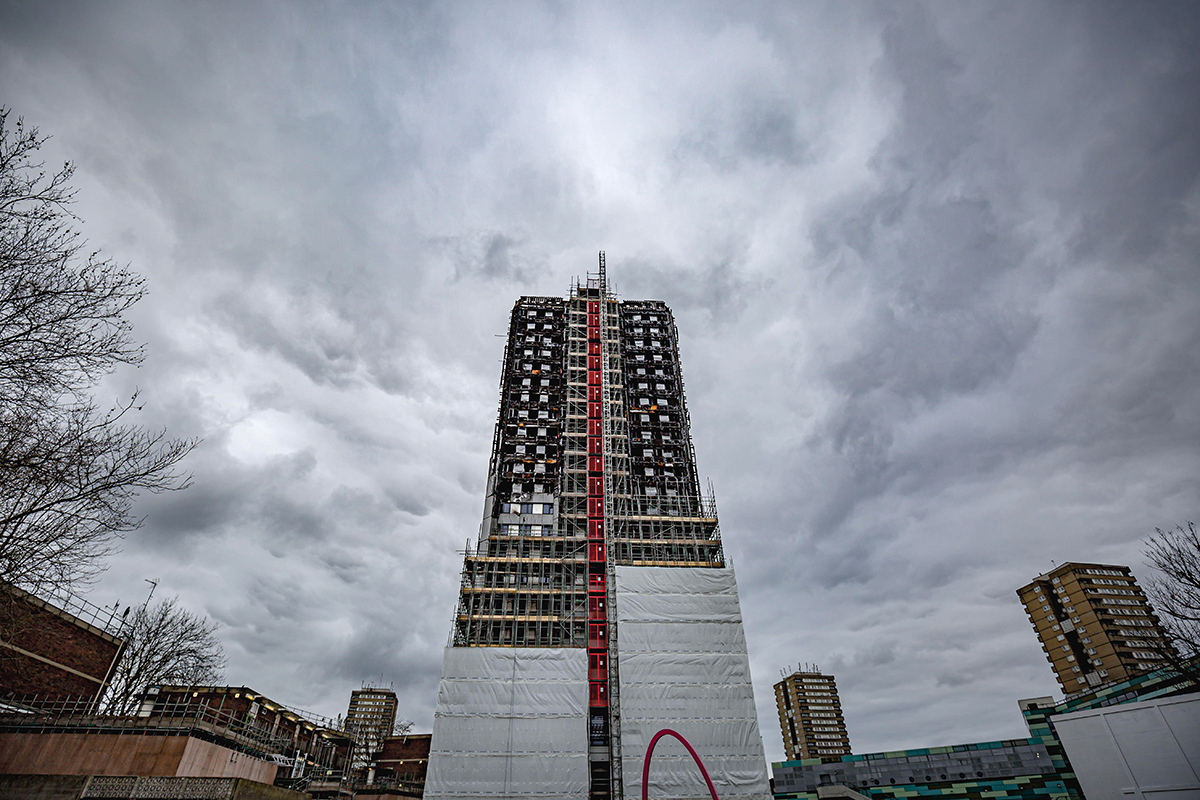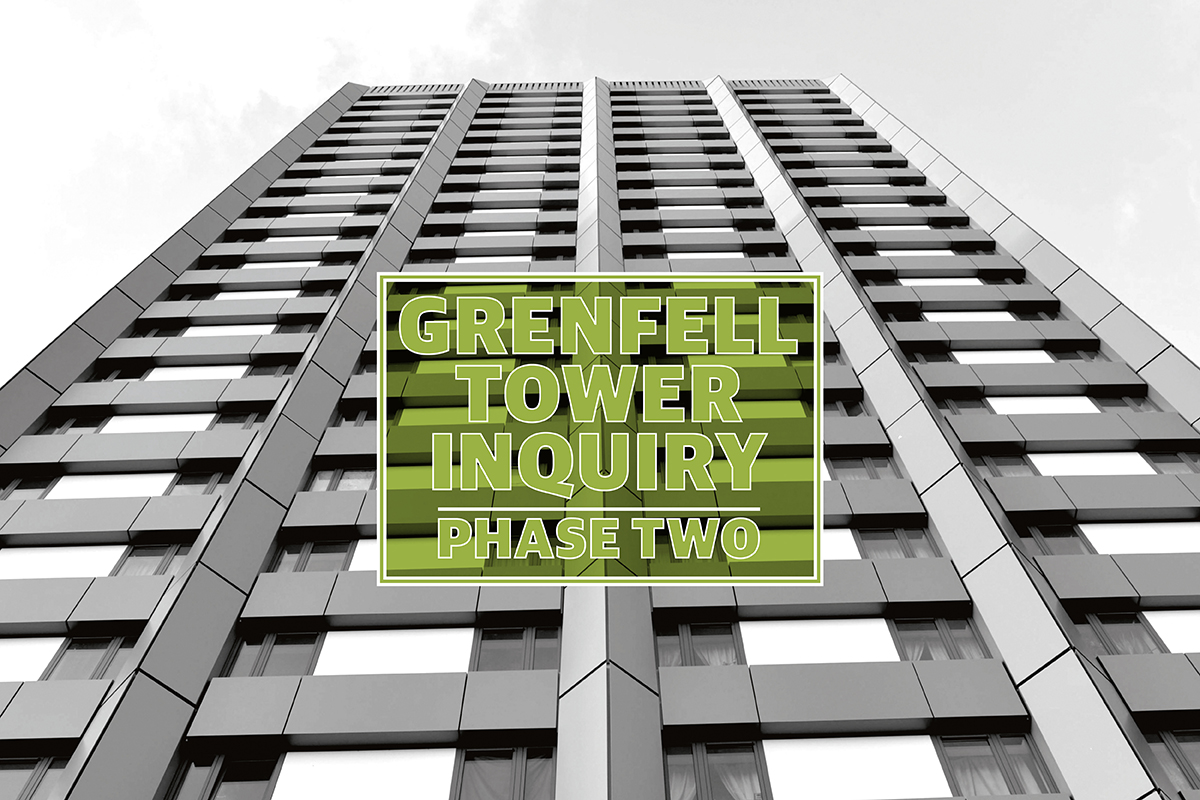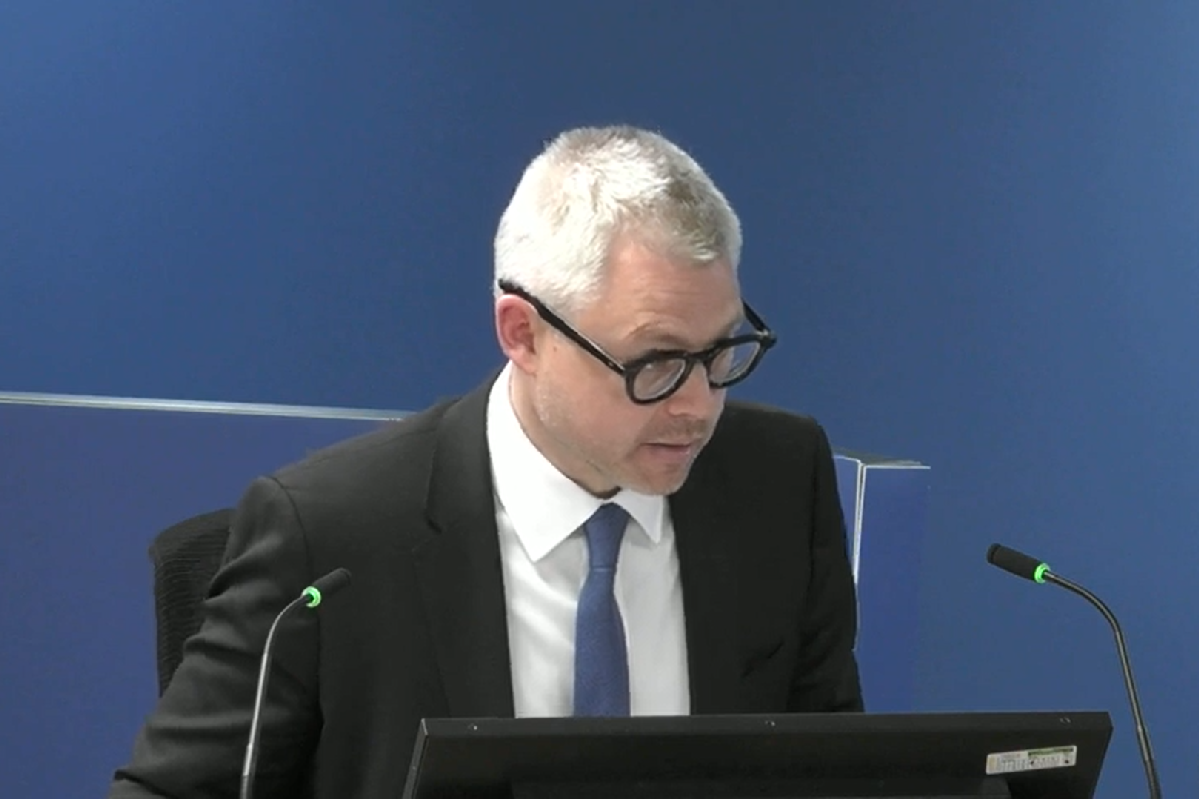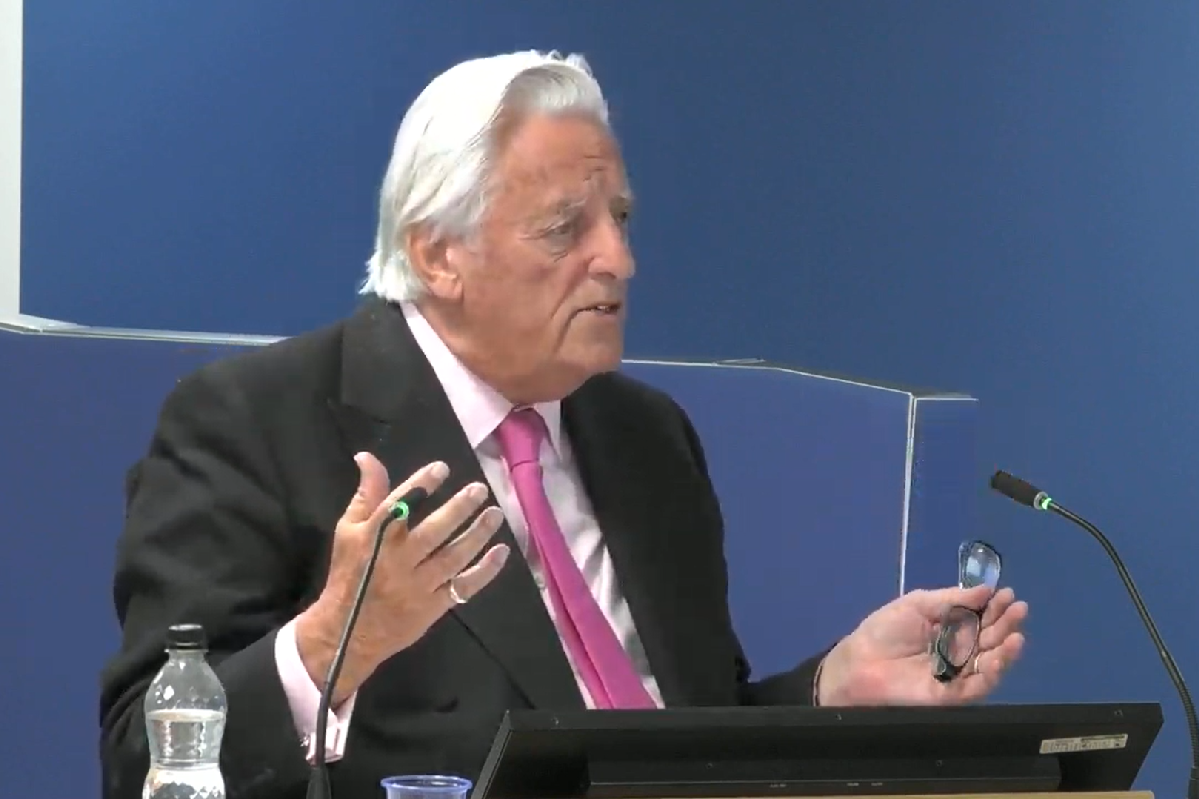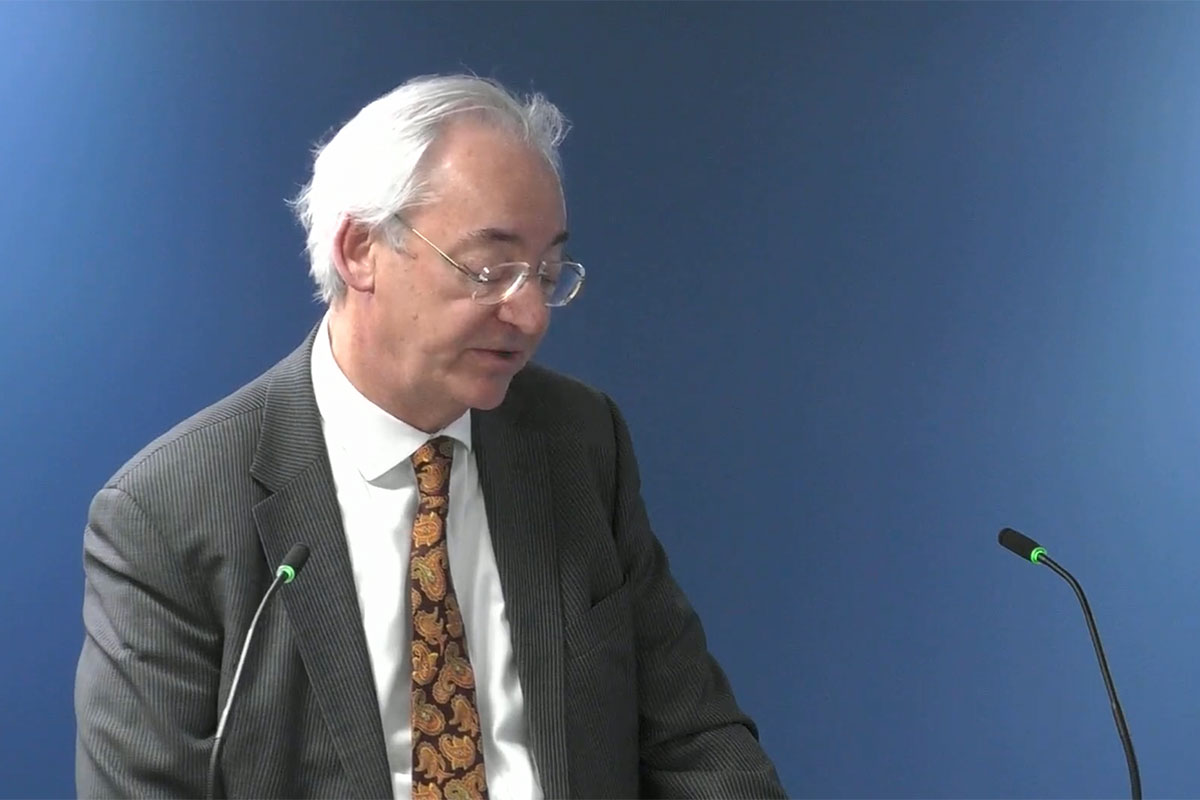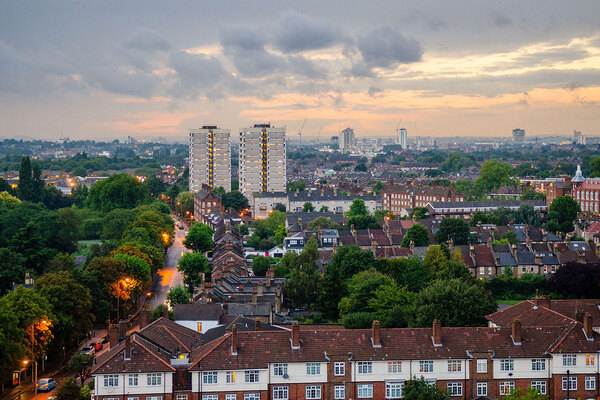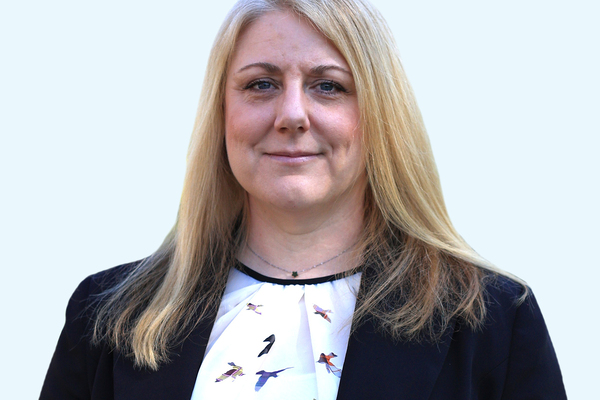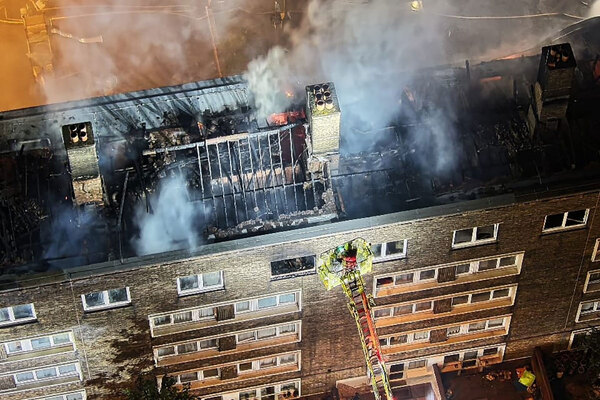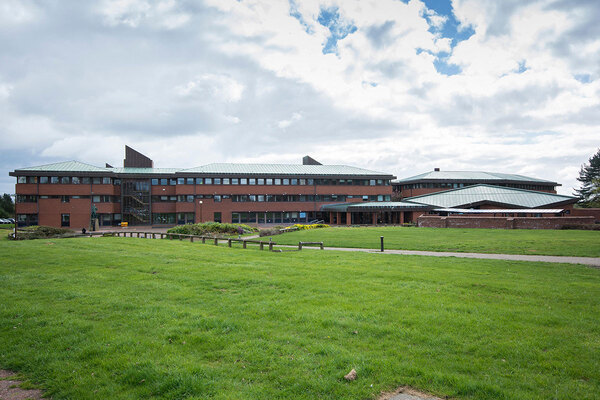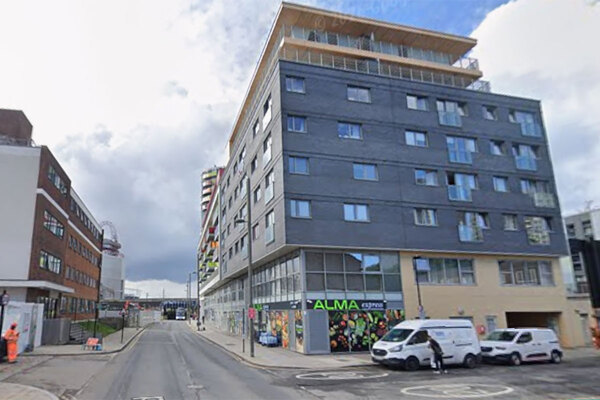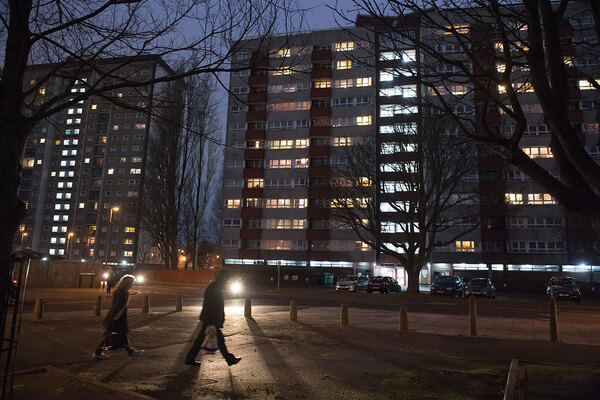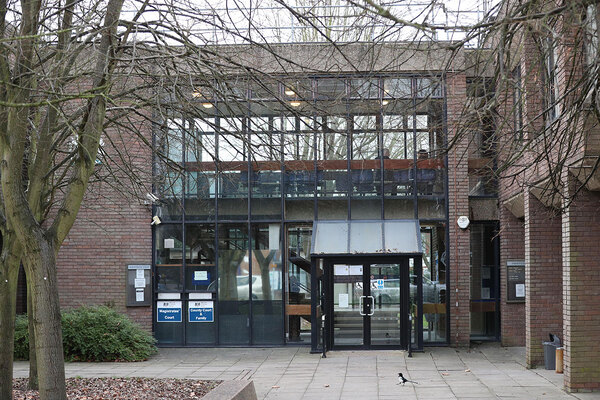Government ‘enslaved to deregulation and wilfully blind to safety concerns’ in years before Grenfell, lawyers for community say
The government was “enslaved to a deregulatory agenda” and adopted “wilful blindness and complacency towards safety” resulting in more than 13 missed opportunities to tighten a critical fire safety standard in the years before the Grenfell Tower fire, lawyers for bereaved and survivors have said.
The inquiry into the fire today heard closing submissions for the evidence covering central government’s actions in the years before the fire, with three lawyers representing the tower’s community addressing the panel.
Stephanie Barwise QC, appearing for one group, said that the government’s efforts to present failures as “an unfortunate by-product of a prolonged lapse in concentration by the department’s officials, tinged with some unspecified ministerial responsibility”, was “fundamentally misleading”.
She said: “It is more than that. The evidence points to wilful blindness and complacency towards safety, which was subjugated to the more pressing and politically appealing housing and deregulatory agendas.”
She was followed by Sam Stein QC, on behalf of another group of bereaved and survivors, who said that government documents reveal that since at least 1988 “cladding fires were a known risk that could kill, a killing risk”.
Michael Mansfield QC, appearing for the same group, added: “The nature and substance of the evidence in this part of the inquiry beggars belief.
“An unresponsive system of parliamentary democracy wherein the concentration of power is vested in a cabal of short-term ministers bereft of any technical expertise to enable challenge, inquiry, robust oversight and transparency. This was, and is, a recipe for disaster.
“The core accelerant fanning the flames was a deep-rooted remorseless, aggressive political dogma disguised as freedom to facilitate the interests of industry and private enterprise.
“This combination of forces nurtured a hostile environment where health and fire safety, human rights and equality within social housing were systematically portrayed as impediments to the free market.”
He said that witness evidence from those in positions of authority had been “characterised by arrogance, ignorance, indifference and in some instances deceit”.
The inquiry has previously heard months of evidence about the government’s failure to revoke a fire standard known as ‘Class 0’ for cladding on tall buildings, which allowed severely combustible materials to pass.
Ms Barwise said: “The seeds of the Grenfell disaster lie in the concealment of the fact that Class 0 cladding was a fire hazard.”
She said this was not addressed by government because of “the realisation of a burgeoning cladding crisis” and “a desire to allow the construction industry sufficient latitude to rapidly build housing”.
“Over time, this was exacerbated by an overarching, unyielding, safety-blind deregulatory agenda, which ministers deny, but officials believed allowed no change to, or clarification of building regulations or [official guidance] Approved Document B,” she said.
Mr Stein referred to a test carried out in 2001, in which a Class 0-rated aluminium composite material (ACM) panel, similar to that later used on Grenfell, proved its horrendous fire performance in a government-funded test.
However, the results were buried until late last year when they were leaked to the BBC shortly before the inquiry revealed them.
“It is a further total disgrace that this obvious, screaming risk to life was simply left hidden from the public eye until this inquiry’s investigation,” Mr Stein said.
Ms Barwise said that the panel would be required to resolve the “extraordinary conflict” between former ministers and officials – which saw ministers claim that officials had “laboured of their own volition under the fatal misapprehension” that deregulatory policies prevented changes to the building regulations.
She also said that her clients rejected the suggestion that key official Brian Martin – who had responsibility for Approved Document B for almost 20 years – was a “single point of failure”.
This was a description given to Mr Martin by the department’s former permanent secretary Melanie Dawes, and one he himself adopted at the end of his evidence.
But Ms Barwise said: “Given his physical proximity to colleagues and the way the department operated, this is not credible. The truth of the matter is that he was put and kept in that position to execute the department’s deregulatory strategy, and indeed promote it, even after Grenfell.”
She added that the department had “completely ignored all the coroner’s recommendations following the fatal Lakanal House fire in 2009”, which had been delivered to then secretary of state Eric Pickles in April 2013, and “withheld” important reports that suggested the need to reform regulations in the years that followed.
“The deliberate decision-making is only consistent with a desire to suppress known risks to avoid interfering with the two driving imperatives: energy efficient housing and deregulation,” she said.
She said the department will admit – in a closing statement due to be delivered on Wednesday – to a catalogue of 13 missed opportunities to revoke the dangerous Class 0 standard, although Ms Barwise said her team believes this list is “not exhaustive”.
She said that the failure in fact began earlier than the government admits, when someone from within central government appears to have instructed the Building Research Establishment (BRE) to “play down” the Knowsley Heights fire in a pilot cladding project in 1991.
That fire was interpreted for years as a result of missing cavity barriers in a non-combustible system, as opposed to the reality: burning combustible cladding that was compliant with the Class 0 standard.
Ms Barwise said this was “a necessary dissembling if one wished to detract from cladding being the cause”.
She added that the same tendency to cover up the risk had been in action after the 2009 Lakanal House fire, when the government’s chief fire officer, Sir Ken Knight, “focused on compartmentation as the cause, at the expense of downward fire spread in the cladding, which he now regrets”.
Sir Ken has been chair of the government’s Independent Expert Panel advising on fire safety policy since the Grenfell Tower fire.
Ms Barwise said that the government’s closing statement blames building regulations officials for “becoming totally internalised in their thinking” ahead of Grenfell.
“That is blaming individuals for a failure to resist an overpowering agenda fanatically adopted by ministers,” she said.
Mr Stein added a call for “accountability” for witnesses who were involved in the failings. He specifically called for two witnesses – Sarah Colwell, director of fire suppression at the BRE, and Mr Martin – to be sacked.
“Both individuals, through indolence or professional ineptitude, missed clear opportunities to change the system of regulation, which would have prevented the tragedy at Grenfell Tower,” he said.
Mr Mansfield repeated calls for former prime minister David Cameron – who gave a speech in 2012 outlining plans to “kill health and safety culture” and wrote to all ministers in his government in the same year ordering them to prioritise deregulation – to be called to give evidence to the inquiry.
Mr Mansfield said that the inquiry was like “Hamlet without the prince” in Mr Cameron’s absence, and that the inquiry has dismissed calls for Mr Cameron to give verbal evidence as “not proportionate”.
“There are obviously necessary questions that the public and that families deserve an answer to,” he said. “Did he recognise what he was doing? Creating a hostile environment in which these errors, these gaps, these mistakes occurred.”
Ms Barwise’s statement was also sharply critical of various bodies involved in the testing and certification of materials or the sign-off of buildings as compliant: the National House Building Council (NHBC), the BRE and the United Kingdom Accreditation Service (UKAS).
She said that the NHBC’s “behaviour demonstrates its total unsuitability as a putative regulator” and that it had accepted the use of combustible Kingspan insulation “to save face”, having wrongly approved it on hundreds of buildings.
She was particularly critical of the BRE, saying it was “complicit in government’s actions” due to the “misleading and therefore dangerous” investigations it carried out into real-world fires and advice it gave on revisions to Approved Document B.
She added: “BRE’s flaccid recommendations to the department were unscientific, and did not communicate a sense of the urgency or importance of the recommendation.”
UKAS, which accredits UK testing houses including the BRE, was described as “an ineffectual organisation, too willing to assume competence in the bodies it oversaw, and so focused on pleasing them, at the expense of public interest, that it will not even report fraud”.
“The frailty of this house of cards was an ideal prop to facilitate industry capture of an inadequately robust regulatory regime,” said Ms Barwise.
She said that despite the failings of government, the primary responsibility for the Grenfell Tower fire still rests with the industry – as those involved in the refurbishment of the tower disregarded and did not check the rules that were in force.
“To conclude that the failure to clarify or amend [Approved Document B] led to the lethal fire spread at Grenfell is to overlook the role of the construction sector in deliberate non-compliance, even in areas where [Approved Document B] left no room for debate, such as insulation and cavity barriers,” she said.
In the afternoon, the inquiry heard closing submissions from Martin Seaward, representing the Fire Brigades Union (FBU), who also took the government to task for its focus on deregulation.
“The free market driven by the desire to maximise profit was never going to be the correct mechanism for ensuring safety in the construction industry,” he said.
“Government policy of deregulation compounded by austerity cuts allowed fire safety to become a costly burden which could be disregarded with impunity pending a disaster like Grenfell.”
He cited the evidence of a civil servant in the building regulations division, Richard Harral, who said he was “told by an official for the [deregulatory Cabinet Office-based] Better Regulation Unit not to consider proposing regulation because the department was struggling with its regulatory budgets”.
He said the panel should accept the evidence of civil servants that building regulations were subject to deregulatory measures and reject the evidence of former ministers such as Eric Pickles that they fell outside this regime as “self-serving and untrue”.
He was followed by Stephen Walsh QC, appearing for the commissioner of the London Fire Brigade, who emphasised the lack of knowledge among many witnesses that ACM was in wide use in the UK.
“Although there was an awareness of international fires involving ACM there was a firm belief that those fires will not occur in the United Kingdom, partly because ACM was not thought to be widely in use on top buildings, but partly, and perhaps mainly because the building regulations were said to prohibit such use,” he said.
He added that building regulations “did not and do not allow for the contingency that stay put as a safety strategy might have to be revoked”.
“We just don't provide for it at all,” he said.
He added that if this position was to be reversed, “it would obviously be necessary, as he says to fundamentally change the regulatory approach, not just change it overnight”.
“All reasonable efforts of course need to be made to ensure residents, including those with disabilities, have an opportunity to evacuate and ought to be supported in doing so in the event of fire,” he said.
Finally, the inquiry heard from Jonathan Glasson QC, representing UKAS, who outlined some of the process changes the organisation has implemented since Grenfell.
He said the “strength of feeling” in the statements by lawyers for the community was justifiable and added that the evidence “demonstrates that improvements are needed”.
However, he added: “Notwithstanding its acknowledgment that there are lessons to be learned, UKAS does not accept that it’s fair to say that the evidence suggests that as an organisation it's not fit for purpose.”
The inquiry continues, with statements from the NHBC, BRE and government on Wednesday.
Update at 10.15am on 21.6.2022
This story was upated to correct a typo in a quote from Mr Glasson, which had used the word 'but' instead of 'that'. It was also updated to say that UKAS accredits rather than regulates UK testing houses.
Sign up for our weekly Grenfell Inquiry newsletter
Each week we send out a newsletter rounding up the key news from the Grenfell Inquiry, along with the headlines from the week
Already have an account? Click here to manage your newsletters
Related stories
